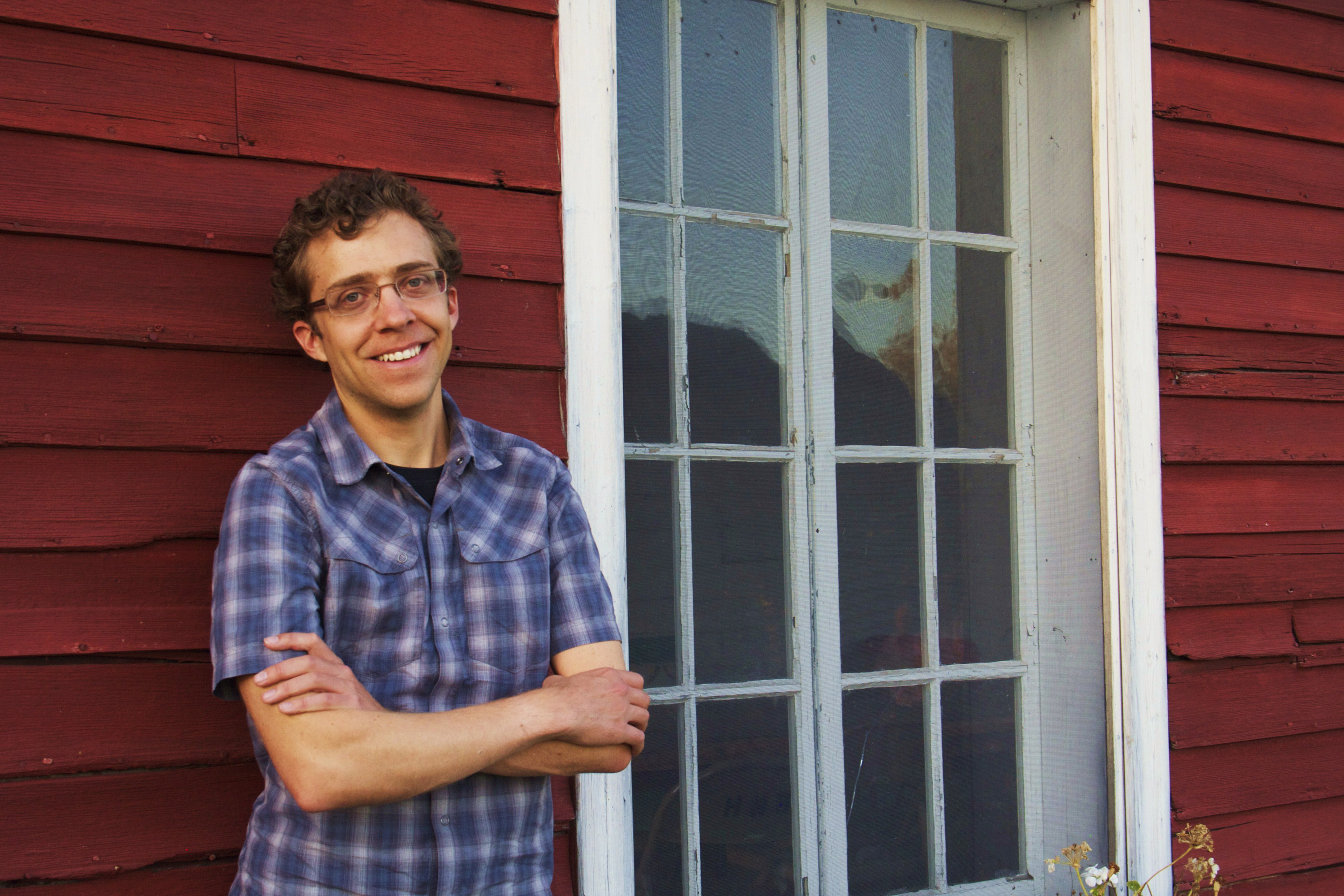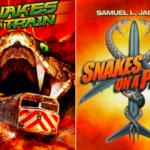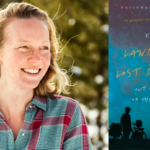Doug Mack is a freelance writer based in Minneapolis and the author of the travel memoir Europe on 5 Wrong Turns a Day: One Man, Eight Countries, One Vintage Travel Guide (Perigee Books/Penguin). His stories tend to focus on fresh, offbeat takes on familiar topics and places, and have appeared in such publications as World Hum, the San Francisco Chronicle, the Onion AV Club, and the Lonely Planet travel writing anthology A Moveable Feast: Life-Changing Food Adventures Around the World
.
How did you get started traveling?
My parents are lifelong travelers — my mom was one of the original hippie Grand Tourist back in the 1960s — and they did their best to pass their shared incurable wanderlust on to me and my sister. We went to the UK for a few weeks when I was eight — my first trip abroad — and then we went back a few more times before throughout my youth. My parents were very, very frugal, in part so that they could afford to travel with the whole family. Travel was just always a priority, something really cherished and anticipated with glee.
After college, I kept meaning to go off on my own long-term independent travel adventure, but never did it, mostly for the expected concerns about money and job security, and also because I had some major health issues. And then one day I discovered a 1963 copy of Europe on Five Dollars a Day, and when I showed it to my mom, she started regaling me (again) with all her travel stories. That really flipped the switch for me: I have to do this, I’m not getting younger, I need to get over these other concerns and just go follow my travel dreams.
How did you get started writing?
Again, my parents were major influences. Our house was always filled with travel books, and I grew up on a steady diet of travel memoirs (still the standard Christmas present in the family); I’m pretty sure I could quote Travels with Charley and How Many Miles to Galena?
verbatim by the time I was about ten. In college, I realized just how much I loved research and reporting and writing—and, more to the point, realized that this was something that I wanted to do in the long-term, as a career.
What do you consider your first “break” as a writer?
Shortly after I graduated from college, I took a short course in travel writing at the Loft Literary Center in Minneapolis. Our instructor mentioned a web site called World Hum and said that they seemed to publish stuff from lesser-known writers. So I took one of the stories I’d workshopped in the class, “Confessions of a Chicken Man,” and sent it off to them, fingers crossed. They accepted it for publication, and that gave me the confidence boost to continue writing and pitching; it also gave me some credibility with editors, and opened some very important doors.
As a traveler and fact/story gatherer, what is your biggest challenge on the road?
I still find it tricky to find the right balance between recording and absorbing — that is, between trying to write down everything, all the time, and just stepping back and being in the moment without pulling out the notepad. I want to let the story unfold naturally — real life tends not to pause while you write frantically — but also get down all of the nuance of the scene: the emotions, the visuals, the telling details that are so often the key to the story. You can’t always have it both ways.
What I typically try to do is just absorb everything, as much as possible, and quickly and discreetly jot down a word or two while I’m in the moment. A few times a day, I’ll try to set aside a few minutes for a more thorough download of everything in my brain to my notebook—not complete sentences, just enough details to capture what I saw. First rule of travel writing: be able to write while walking. Second rule: be able to decipher your notes later. (Third: don’t walk into a pole /street /small dog while writing.)
What is your biggest challenge in the research and writing process?
One effect of my note-taking technique is that I often have too much information, and it’s not necessarily well-organized (or even legible). It can be quite the ordeal to sift through everything and figure out what matters and what doesn’t, what’s really important to the story I want to tell—or, for that matter, to determine if I should really be telling an entirely different story. Sometimes I come back and look at my stack of notes and start to despair: I have both too much information and almost nothing at all and I can’t figure out how it all fits together cohesively — and maybe I should just quit writing and become a potter or something. But then again, often those moments of frustration and desperation when the magic happens and I make some unexpected connection or realization, and all of a sudden the pieces of the story fall into place.
What is your biggest challenge from a business standpoint?
Finances. No question. Writing is, um, not lucrative, especially when you’re starting out — and by “starting out,” I mean even years or a decade into your career. Pitching and just trying to get work, period, is a constant and sometimes exhausting task — obviously, being a writer is not just about crafting witty bon mots and thought-provoking essays — but ultimately, the frustration there, at least for me, comes from a healthy amount of fear: If I don’t sell something soon, I might not be able to pay the rent. I will continue to write things even if no one pays me for it, but I always cringe when people glamorize the whole suffering-for-your-art thing. I like to be able to eat. Something can be an art, a passion, and also a vocation; they aren’t mutually exclusive.
Have you ever done other work to make ends meet?
Actually, I’ve never NOT done other work to make ends meet. I have a part-time office job that provides a predictable paycheck, health insurance, and the intangible benefits of workplace camaraderie and a general day-to-day routine that I enjoy. I realize some travelers find that sort of lifestyle pedestrian and boring, but I genuinely enjoy it. Mind you, I’d love to write full-time, and here’s hoping I’ll be able to do that sooner rather than later. But for now, I don’t mind doing other work, too.
What travel authors or books might you recommend and/or have influenced you?
Um, how much space do we have here? The big ones are Bill Bryson and Calvin Trillin — I grew up reading them, and I like to think there’s a least a tiny hint of their humor in my writing voice. In terms of helping me discover the joys of finding the offbeat or postmodern angle on the familiar destinations were, two other big influences were Pico Iyer and — well, Mr. Rolf Potts. Really. And I’ve spent many an hour fruitlessly trying to reverse-engineer various travel-plus-narrative-nonfiction books by the likes of Tony Perrottet, Sarah Vowell, and, maybe most of all, Bill Buford — I can’t tell you how many times I’ve read and re-read Heat, trying to figure out how he weaves together all the threads of the story.
What advice and/or warnings would you give to someone who is considering going into travel writing?
I’m sure everyone has heard this before, but don’t quit your day job. Actually, I think that for a career in writing in general (not just travel writing), there’s a definite benefit to having some sort of other background. Working in an office or a restaurant or as a landscaper — or anything that isn’t just about writing — gives you some added perspective on the world and on storytelling.
In terms of writing, again, this is one of those things that’s obvious but can’t be said enough: persevere. Keep writing, keep pitching, keep polishing. Develop thick skin — rejection is part of the game and it happens to everyone. A lot. I love that Samuel Beckett quote: “Fail better.”
My other advice is to find your personal style and interest, both as a writer and a traveler, and really try to make the most of those particular things that set you apart. Do not be all things to all people. Voice. Voice. Voice. This will set you apart. Find it. Work it. Own it.
What is the biggest reward of life as a travel writer?
Aside from the fame and fortune and groupies, you mean? Travel writing is, in the end, fun and interesting. It’s work, for sure — not just sitting on beaches drinking daiquiris; I’m still waiting for that assignment — but it’s fun and it’s interesting. Truly, deeply interesting. I love going to a place and meeting people and hearing their stories. That’s the biggest reward, ultimately: sharing stories, passing along details about the wonders and craziness (and horrors) of the planet. The biggest compliment someone can pay me is to say that I’ve made him or her more aware of and interested in a particular place or culture, more curious about and engaged in the world. If you read a story of mine and you suddenly want to know more about that topic and keep digging on your own, then I’ve done my job.





